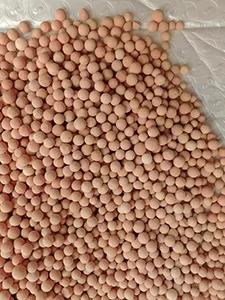3A molecular sieve is the primary choice for ethanol dehydration, thanks to its precisely sized pores (3 angstroms) that selectively trap water molecules while blocking larger ethanol molecules (diameter ~4.4 angstroms). This size exclusion ensures efficient separation, allowing the sieve to remove moisture from ethanol-water mixtures, even at low water concentrations.

The hydrophilic nature of 3A molecular sieve enhances its performance, as water molecules are strongly attracted to its polar surface sites. This affinity drives thorough dehydration, producing anhydrous ethanol (water content <0.1%)—critical for applications like fuel ethanol or pharmaceutical solvents. In industrial setups, the sieve is packed into columns as durable packing, maximizing contact with the ethanol stream.
While 4A molecular sieve can also adsorb water, its larger pores (4 angstroms) may partially adsorb ethanol, reducing efficiency. 3A sieve avoids this issue, maintaining higher adsorption capacity and longer cycles. Regeneration is achieved by heating the molecular sieve to 200–300°C, releasing trapped water and restoring its activity. This regenerability makes 3A molecular sieve a cost-effective solution for continuous ethanol dehydration processes, outperforming alternatives like distillation in energy efficiency and product purity.

